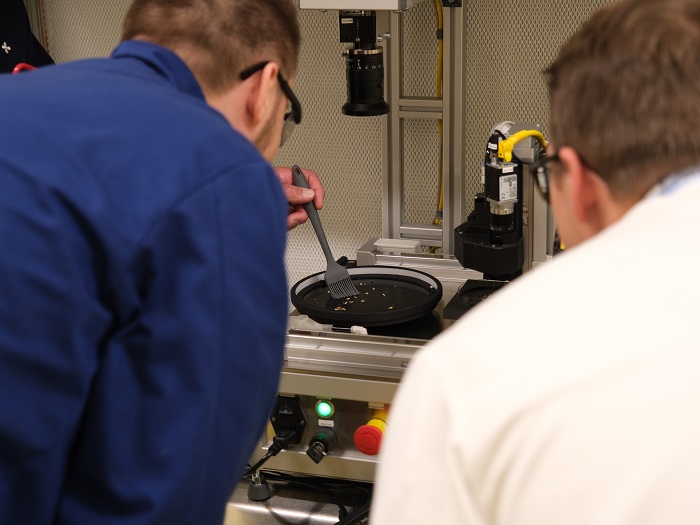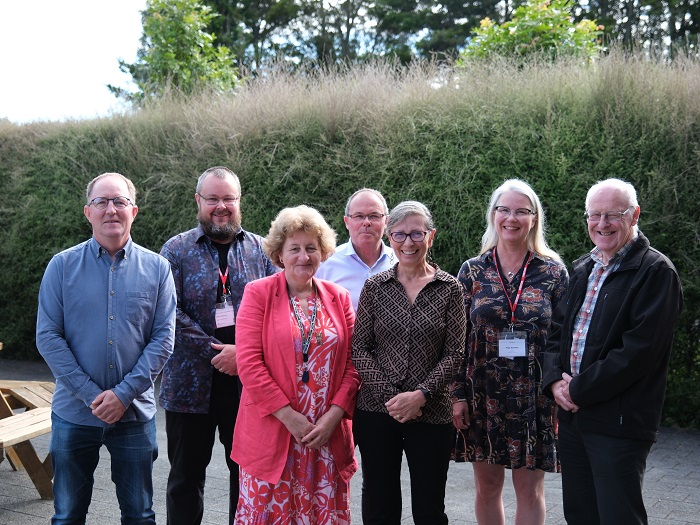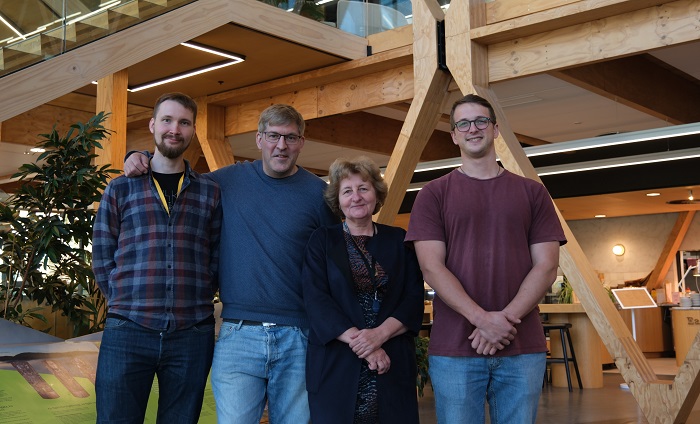International science partnership to be formalised as valuable tool blessed
An international collaboration exploring using a robot from Finland, to improve productivity and consistency in propagation for forestry is being formalised. A key tool to help achieve those outcomes has been officially blessed.
Forest Growers Research (FGR) and Scion will sign a formal partnership agreement with the Natural Resources Institute Finland (Luke) and the South-Eastern Finland University of Applied Sciences (Xamk) as part of an FGR-funded research programme.
Tissue Culture Techniques for 21st Century Forests aims to expand and automate the use of somatic embryogenesis of radiata pine for the commercial forestry industry. Somatic embryogenesis is a process that induces immature embryos to produce masses of cells containing many tiny somatic embryos. These are encouraged to form mature embryos to develop into seedlings.
Scion is the science lead on the research programme which involves other international partners and aims to create a reliable and cost-effective propagation method to boost productivity and ensure consistent results.
Sorting mature somatic embryos before germination is time-consuming and subjective so Scion and FGR are exploring using a robotics system from Finland for the task.
Luke and Xamk jointly developed a robot prototype and software to automatically pick mature somatic embryos for germination. It uses automated image capture using machine learning and artificial intelligence to determine if the embryo should be germinated or rejected.
The robot was initially programmed for use on Norway Spruce (Picea abies) and the tissue culture programme is exploring its suitability for radiata pine.

In September 2023, Scion staff including scientist Associate professor Jana Krajňáková visited Luke and Xamk to explore if the machine could be used for radiata pine embryos and successful trials led to its purchase in October 2023 by Forest Growers Research.
In May the robot arrived at Scion. Xamk engineer Elmar Bernhardt assembled it, and Luke scientist Sakari Valimaki has been hosted by Scion while he trains the team in Scion’s Tissue Culture laboratory to work with the robot and the robot to work with radiata pine.
The four parties are exploring integrating AI into the robot to achieve a working prototype for automated picking of radiata pine embryos. Commercialising the robot and expanding its use to other species is under preparation. They are also looking at the commercial potential of somatic embryogenesis for radiata pine.
This month, the four-way collaboration is being formalised with the signing of a partnership agreement. The robot has been officially blessed.
Dr Paul Adams from FGR says the Partnership is an exemplar of the benefits of international collaboration and a cross-disciplinary approach, learning from each other, gaining different experiences with different species, and finding a more efficient way of making faster progress. The ability to apply the learnings across other important forestry species will be a gamechanger into the future, he says.

Krajňáková says there has been significant interest in the robot from industry partners and the first germination experiments have been undertaken.
The robot aligns with one of the goals of the FGR tissue culture project which is to streamline propagation to make it more cost effective and efficient, she says.
“The propagation process is time consuming and tiring and humans are not consistent. The robot’s algorithm uses the same criteria to select embryos around the clock.”
Having the machine also opens more commercial work opportunities and can increase efficiency.
Dr Tuija Aronen and Dr Mikko Tikkinen from Luke say it is important to have experience using the robot with different species and the partnership will deepen the research collaboration with Scion and the New Zealand forestry industry.
The green tech robotics partnership with Scion and FGR represents a key milestone in the internationalisation of Xamk’s research, development and innovation activities within the forest bioeconomy sector.
"This technology promotes the green transition in an important research area for us", says Hannu Leinonen, Head of Electronics 3K Factory at Xamk.
The blessing on September 4 was attended by invited guests from the New Zealand industry, Scion and Forest Growers Research.

